In today’s digital era, screen time is a prevalent part of children’s lives. While technology offers educational and entertainment benefits, excessive screen exposure can interfere with sleep patterns. Understanding these effects is vital for parents aiming to balance screen time with healthy sleep habits for their children.
1. Blue Light Exposure

Blue light from screens can trick children’s brains into thinking it’s daytime, disrupting their sleep cycle. This artificial light suppresses melatonin production, the hormone responsible for sleepiness.
Without adequate melatonin, children may find it challenging to fall asleep. Instead of winding down, their bodies remain alert and awake. Over time, this can lead to chronic sleep deprivation and related health issues.
Parents can help by limiting screen time before bed and encouraging activities that promote relaxation. A peaceful bedtime routine without gadgets can improve sleep quality significantly.
2. Overstimulation
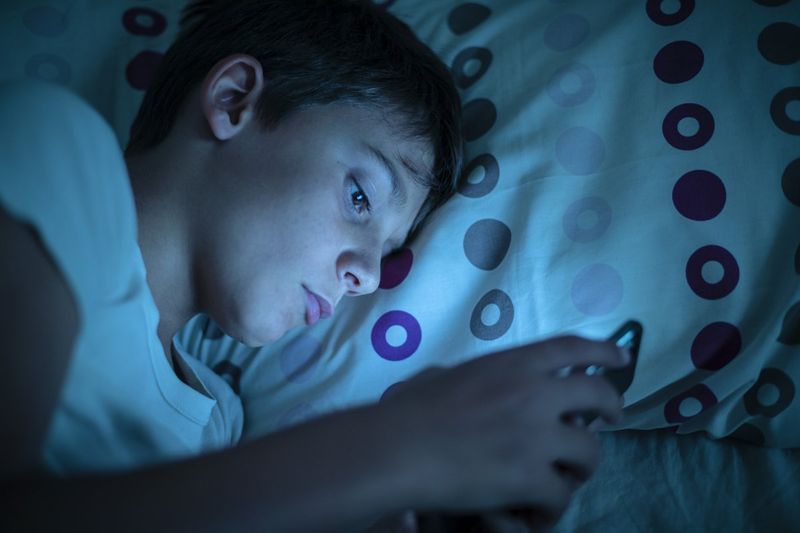
Engaging with interactive screens can overstimulate a child’s brain, making it hard to switch off at bedtime. Games and videos demand concentration, causing mental excitement that conflicts with the need for rest.
After an intense gaming session, children might feel mentally wired, struggling to unwind. This overstimulation can delay sleep onset and reduce overall sleep duration.
To combat this, parents should set boundaries on gaming time, especially in the evening. Encouraging quieter, non-digital activities before bed can ease the transition to sleep.
3. Reduced Physical Activity
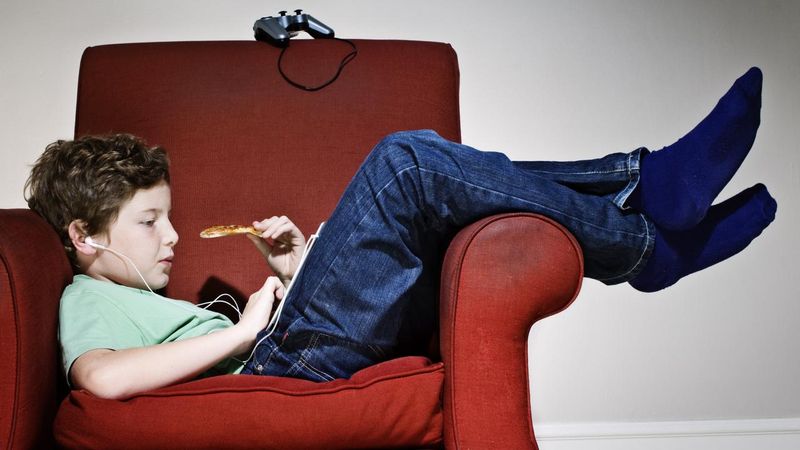
Excessive screen time often replaces physical activities, which are crucial for children’s health and sleep. Lack of exercise can lead to poorer sleep quality as physical tiredness aids in falling asleep.
Children who spend more time on screens may become sedentary, missing out on the natural fatigue that comes from physical play. This can make falling asleep more difficult and lead to restless nights.
Promoting outdoor play or sports can help balance screen time. Physical exertion not only supports healthy sleep patterns but also enhances overall well-being.
4. Emotional Disturbance
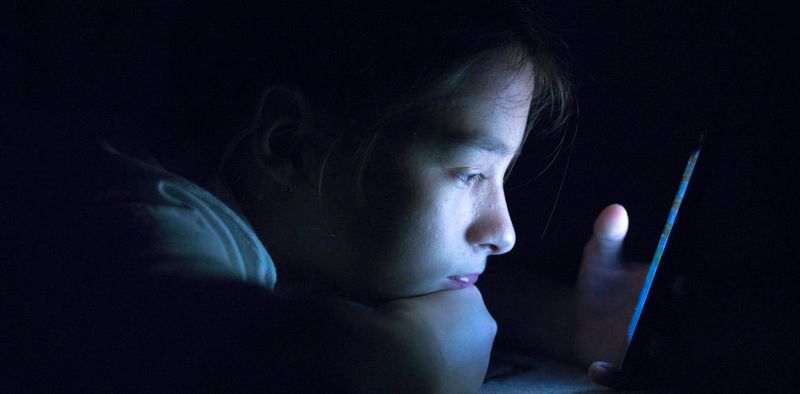
Screens often expose children to content that can stir emotions, potentially affecting their sleep. Watching distressing videos or engaging in intense online interactions may lead to anxiety or fear.
These heightened emotions can create a restless mind at bedtime, making it hard for children to relax. Emotional arousal before sleep can prolong the time it takes to fall asleep and disrupt the sleep cycle.
Parents can mitigate this by monitoring content and discussing feelings. Encouraging children to share their thoughts can help them process emotions before bed, promoting a calm mind and better sleep.
5. Irregular Sleep Schedule

Screen time can lead to irregular sleep schedules, especially when it’s used right before sleeping. Children may lose track of time, staying up late with devices.
This disrupts the body’s natural sleep-wake cycle, making it difficult to establish a consistent bedtime. Over time, irregular sleep patterns can result in sleep deprivation and decreased daytime alertness.
To establish a healthy routine, parents can set a strict bedtime and limit screen exposure in the evening. Consistency helps regulate the sleep cycle, improving both quantity and quality of sleep.
6. Decreased Sleep Quality

Screen time can negatively impact sleep quality, leading to frequent awakenings and lighter sleep stages. The content viewed can cause restlessness, disrupting the deep sleep essential for growth and development.
Children may experience fragmented sleep if they consume stimulating media before bed. Over time, this can affect their mood, behavior, and academic performance.
Implementing a technology curfew and promoting calming activities before bed can enhance sleep quality. Reading a book or listening to soft music can facilitate relaxation, paving the way for a more restful night.
7. Nightmares and Sleep Anxiety
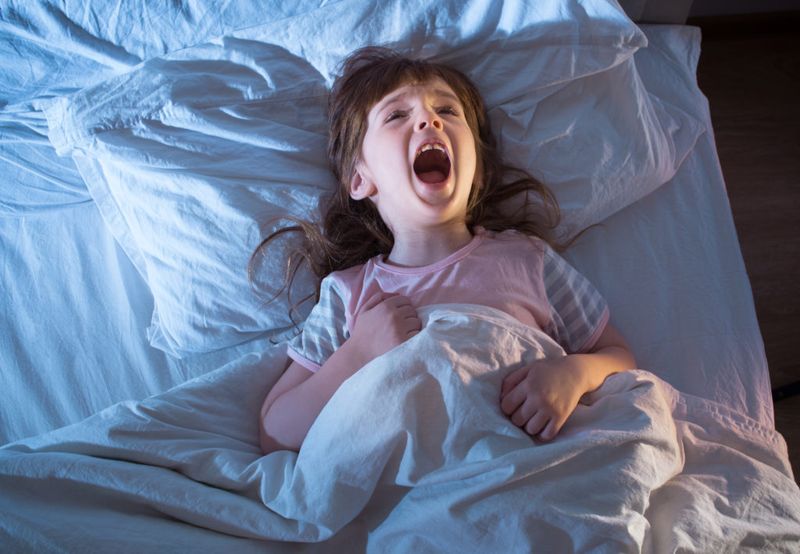
Exposure to intense or scary content via screens can lead to nightmares and sleep anxiety in children. The vivid imagery from media can linger, causing fear and distress at bedtime.
These nightmares can interrupt sleep, leading to anxiety about going to bed. Recurring bad dreams may deter children from wanting to sleep at all.
Parents can address this by ensuring content appropriateness and providing reassurance before bed. Creating a safe and comforting sleep environment can alleviate anxiety, helping children feel secure and ready to rest.
8. Increased Screen Dependency
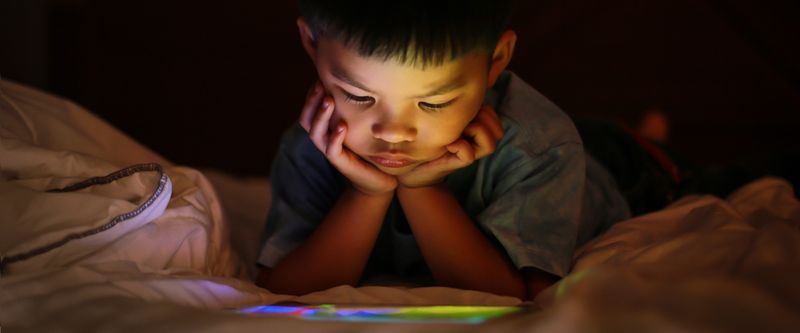
As children become accustomed to using screens, they may develop a dependency that interferes with sleep. Using devices for entertainment can become a crutch, making it difficult to disconnect at bedtime.
This dependency can lead to arguments over screen limits and affect family dynamics. Children might refuse to sleep without their devices, leading to power struggles.
Setting clear rules about screen usage and modeling healthy habits can reduce dependency. Encouraging hobbies and alternative activities can shift focus away from screens, promoting better sleep practices and fostering a balanced lifestyle.

Well, hello there!
My name is Jennifer. Besides being an orthodontist, I am a mother to 3 playful boys. In this motherhood journey, I can say I will never know everything. That’s why I always strive to read a lot, and that’s why I started writing about all the smithereens I came across so that you can have everything in one place! Enjoy and stay positive; you’ve got this!

